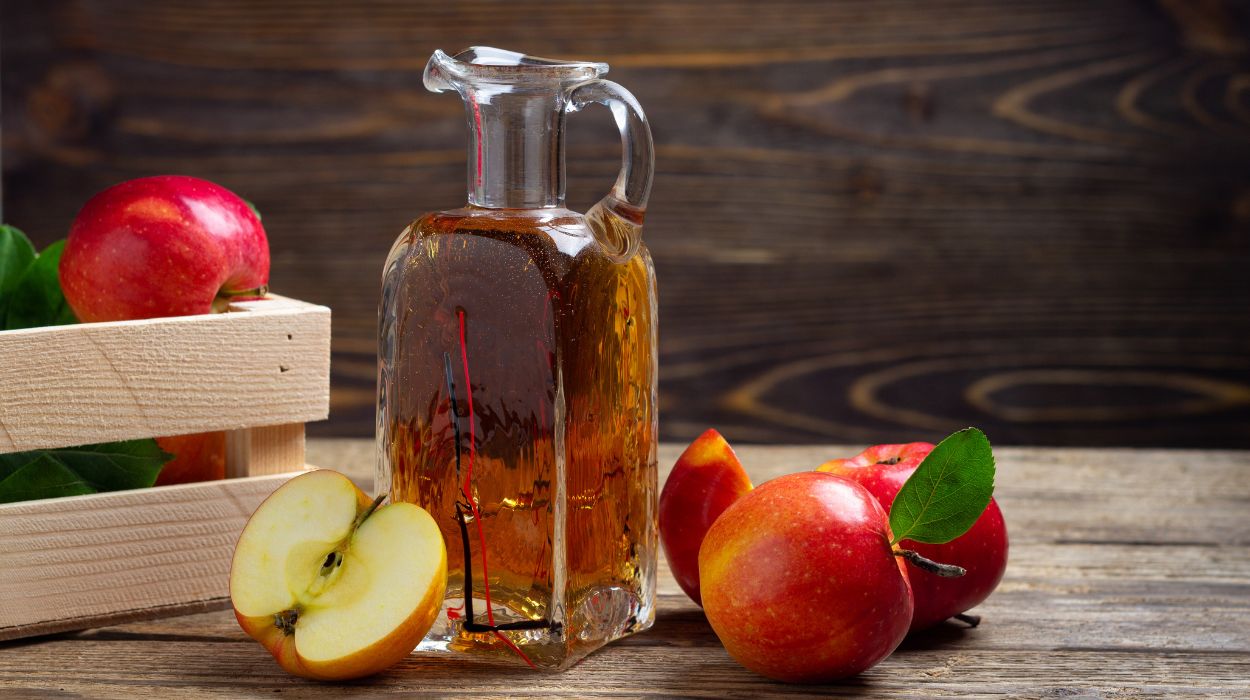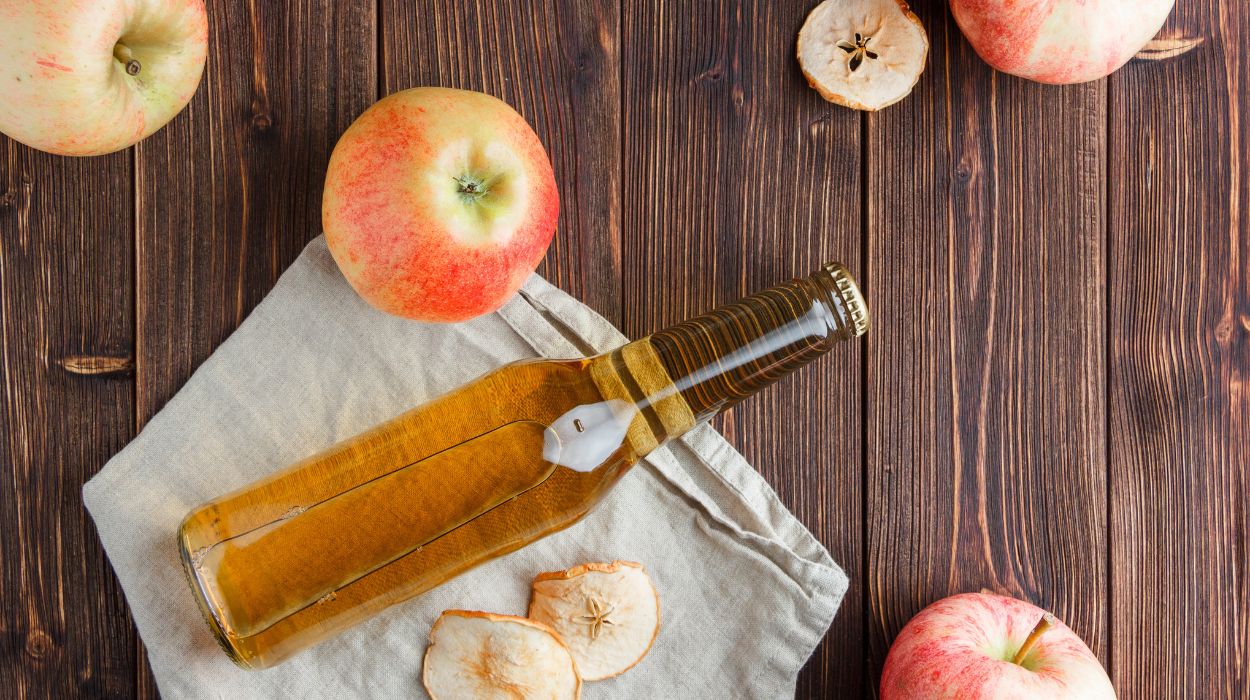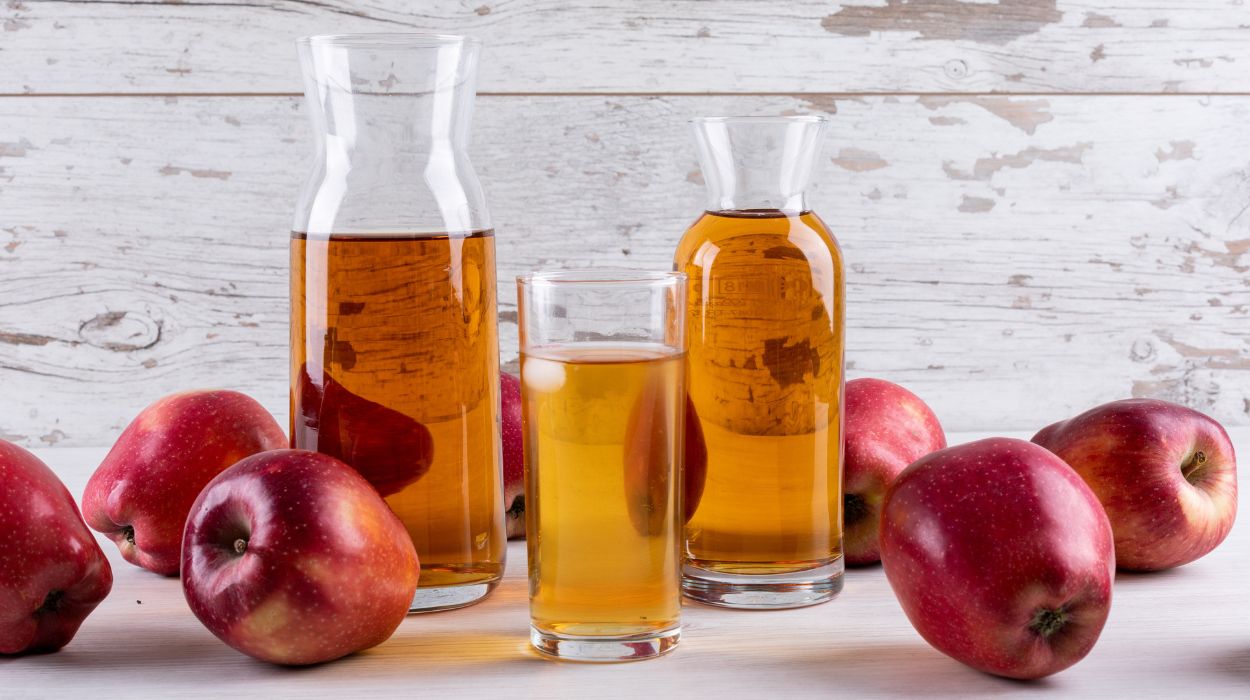 Expert's opinion
Expert's opinion
Expert's opinion
The article is a subjective view on this topic written by writers specializing in medical writing.
It may reflect on a personal journey surrounding struggles with an illness or medical condition, involve product comparisons, diet considerations, or other health-related opinions.
Although the view is entirely that of the writer, it is based on academic experiences and scientific research they have conducted; it is fact-checked by a team of degreed medical experts, and validated by sources attached to the article.
The numbers in parenthesis (1,2,3) will take you to clickable links to related scientific papers.
Does Apple Cider Vinegar Go Bad 2024? How Long Does It Last?

When purchasing any perishable item, the first thing to look for is the expiration date on the package. The expiry date assists you in creating a timeline for when you must use a commodity to prevent it from going to waste. Because if you don’t use it by the expiry date, you risk getting food poisoning or simply throwing a portion of your investment out in the garbage.
Many people have been wondering if apple cider vinegar (ACV) goes bad, and this article is intended to provide an answer to that and other related questions. After this, you will know if apple cider vinegar can go bad on you. We’ll look at the facts and even delve a little into the manufacturers’ recommendations on the subject.
Let’s begin by defining what ACV is and how it differs from regular vinegar.
Does Apple Cider Vinegar Go Bad?
Does apple cider vinegar expire? ACV goes bad, but only in the sense that you may not be able to utilize it in the same manner or enjoy the same taste it once had. However, it does not truly expire, and the fermentation process continues. The cider vinegar ages via carbonation when exposed to heat, and the solution develops into a strong alcoholic mixture.
The shelf life of apple cider vinegar is two years unopened and one year after you have broken a seal on the bottle. Condiments that contain other ingredients than ACV will have an expiration date that varies according to the type of product and storage conditions. Salad dressings and marinades, for example, may have a shorter shelf life than other types of condiments.
They are likely to contain ingredients that will spoil if they are not stored in a cool, dry environment like a refrigerator.
Because the ACV acidity level is high, it can be considered a self-preserving substance in some ways. Thus, the likelihood of getting contaminated with infectious microorganisms is low. However, it is crucial to keep it properly to extend its shelf life.
E. coli and salmonella bacteria in unpasteurized ACV are a concern. As a result, before using ACV, be sure that it has been pasteurized to the proper temperature. Even while most store-bought apple cider vinegar has been pasteurized, it’s always a good idea to double-check the label to make sure.
What Is Apple Cider Vinegar?

ACV is a multipurpose cuisine component[1] that also happens to have numerous health benefits. ACV is frequently used in baking and cooking along with marinades, sauces, and even drinking apple cider vinegar.
And this is how it is made:
ACV is made by crushing and fermenting[1] apples. The fermentation process goes through 2 stages. You can mash the apples and add yeast to speed up the process, which involves converting the sugar into alcohol. Then you can turn the alcohol into vinegar through acetic fermentation with the help of bacteria of the Acetobacter family.
ACV is different from vinegar products because it contains acetic acid[2], which imparts its somewhat sweet, tangy flavor. Apple cider vinegar contains about five to six percent acetic acid while white vinegar contains considerably more, about five to ten percent.
If the ACV has a label of “raw ACV” or “unprocessed ACV,” it hasn’t been filtered or heated before being sold. Perhaps you’ve seen some murky, stringy material at the bottom of the vinegar jar. It does not suggest that this apple cider is expired. It’s referred to as “mother“[3], and it is a byproduct of the fermentation process. It contains healthy bacteria and enzymes that are advantageous to the body.
How Long Does Apple Cider Vinegar Last?
As mentioned previously, it lasts two years unopened apple cider vinegar and one year opened, but in truth, it never really expires. But, that is where pasteurization comes in. The Food and Drug Administration (FDA) says that unpasteurized ACV can only be sold by the same farm that grew and pressed the apples and sold them directly to the consumers.
Apple juice and cider sold in the produce or dairy departments of grocery stores may be pasteurized or unpasteurized, however, so check the label or ask the grocer directly.
Due to its acidic nature, vinegar is a self-preserving home staple that rarely goes bad or expires. That is not to say that contaminants cannot get into ACV and cause it to go bad such as dust or microorganisms after it’s been opened apple cider vinegar. It’s best to store ACV in the refrigerator after opening to avoid contamination.
A substance’s acidity is measured using the pH scale, spanning 0 to 14. A pH of less than 7 indicates acidity, while a higher than 7 indicates basicity. The major component of apple cider vinegar, acetic acid, has a strongly acidic[4] pH of 2 to 3.
Vinegar has natural antibacterial qualities, explaining why it has a long, indefinite shelf life. Vinegar has been shown to inhibit the growth of bacteria[5] that cause illness, such as Staphylococcus aureus, E. coli, and Candida albicans.
Compared to soda, juice, tea, coffee, and olive oil, vinegar exhibited the most antimicrobial properties, as shown in this study[6].
Store ACV in a tightly sealed jar in a cool, dark place away from direct sunlight, such as the kitchen pantry or cellar. This is according to most manufacturers’ instructions. ACV does not require refrigeration unless the seal has been broken, as mentioned previously.
How To Store ACV Properly?

ACV does not need to be refrigerated once opened. Instead, store it in a cupboard, pantry, or drawer where it will not be exposed to direct sunlight. Refrigeration is only precautionary to keep other contaminants from getting into the ACV once it’s been opened or causing problems if contaminants are already there.
Vinegar’s appearance may change as it ages, such as becoming cloudy or separating from the liquid. If you look at the bottom of the container, you might notice cloudy sediments or threads.
The sediments are primarily due to oxidization[7], which occurs every time the lid is opened. Oxidation produces the emission of sulfur dioxide and citric acid, two vinegar stabilizers[8], over time.
These aesthetic changes may impact how apple cider vinegar tastes or how much it contributes to a recipe. It does not influence the nutritional value or shelf life of vinegar. Please keep in mind that while apple cider vinegar products may contain an expiry date, many manufacturers indicate that they are safe to use for a lengthy amount of time after that date.
Regardless, here are some general storage tips you should follow to ensure that your apple cider vinegar remains in peak condition:
- Store in its original packaging.
- Store in a dark corner in the pantry.
- Store away from direct sunlight.
- Keep the container sealed.
How To Tell If Apple Cider Vinegar Is Bad
The most obvious signs to tell if your ACV is bad are smell, taste, and looks. If bugs are floating in it, it is bad. But it can also be lumpy, indicating it’s gone bad. Sediment floating at the bottom may not be an indication that things have gone wrong, or it may be an indication of the presence of contaminants.
The sediment is not to be confused with the “mother.” The best way to tell if it has gone bad is to smell it. ACV has a sweet, tangy smell to it and tastes the same. When and if ACV goes bad, the smell and taste go bad as well.
The Bottom Line
Many consumers keep asking themselves questions like how long ACV lasts. Can apple cider vinegar go bad? Does apple cider vinegar go bad if not refrigerated? And does apple cider vinegar go bad once opened?
The answer is that the shelf life will depend on the apple cider you buy. It does not go bad, does not need refrigeration, and does not go bad after opening. It may oxidize faster, but that may take a while. To keep your apple cider fresh, you need to ensure that it is stored properly. Also, use it according to the expiry date listed on the packaging.
Nevertheless, there are aesthetic changes and how to tell if apple cider vinegar is bad is by seeing floating lumps in the container or by an off-smell or taste. But do not confuse contamination with the murky brown color of the “mother.” Remember, it is not expired, just fermented further!
There is no expired apple cider vinegar but one that has continued the fermentation process. So, pasteurized apple cider vinegar does not expire.
+ 8 sources
Health Canal avoids using tertiary references. We have strict sourcing guidelines and rely on peer-reviewed studies, academic researches from medical associations and institutions. To ensure the accuracy of articles in Health Canal, you can read more about the editorial process here
- Song, J., Zhang, J., Kang, S., Zhang, H., Yuan, J., Zeng, C., Zhang, F. and Huang, Y. (2019). Analysis of microbial diversity in apple vinegar fermentation process through 16s rDNA sequencing. Food Science & Nutrition, [online] 7(4), pp.1230–1238. Available at: https://www.ncbi.nlm.nih.gov/pmc/articles/PMC6475731/.
- Štornik, A., Skok, B. and Trček, J. (2016). Comparison of Cultivable Acetic Acid Bacterial Microbiota between Organic and Conventional Apple Cider Vinegar. Food Technology and Biotechnology, [online] 54. Available at: https://www.ncbi.nlm.nih.gov/pmc/articles/PMC5105631/.
- Singh Akanksha and Mishra, S. (2017). STUDY ABOUT THE NUTRITIONAL AND MEDICINAL PROPERTIES OF APPLE CIDER VINEGAR ARTICLE INFO ABSTRACT. [online] ResearchGate. Available at: https://www.researchgate.net/publication/322953260_STUDY_ABOUT_THE_NUTRITIONAL_AND_MEDICINAL_PROPERTIES_OF_APPLE_CIDER_VINEGAR_ARTICLE_INFO_ABSTRACT.
- Cortesia, C., Vilchèze, C., Bernut, A., Contreras, W., Gómez, K., de Waard, J., Jacobs, W.R., Kremer, L. and Takiff, H. (2014). Acetic Acid, the Active Component of Vinegar, Is an Effective Tuberculocidal Disinfectant. mBio, [online] 5(2). Available at: https://www.ncbi.nlm.nih.gov/pmc/articles/PMC3940030/.
- Yagnik, D., Serafin, V. and J. Shah, A. (2018). Antimicrobial activity of apple cider vinegar against Escherichia coli, Staphylococcus aureus and Candida albicans; downregulating cytokine and microbial protein expression. Scientific Reports, [online] 8(1). Available at: https://pubmed.ncbi.nlm.nih.gov/29379012/.
- MEDINA, E., ROMERO, C., BRENES, M. and de CASTRO, A. (2007). Antimicrobial Activity of Olive Oil, Vinegar, and Various Beverages against Foodborne Pathogens. Journal of Food Protection, [online] 70(5), pp.1194–1199. Available at: https://pubmed.ncbi.nlm.nih.gov/17536679/.
- Cousin, F., Schlusselhuber, M., Dalmasso, M., Laplace, J.-M. and Cretenet, M. (2017). Microorganisms in Fermented Apple Beverages: Current Knowledge and Future Directions. Microorganisms, [online] 5(3), p.39. Available at: https://www.ncbi.nlm.nih.gov/pmc/articles/PMC5620630/.
- Casale, M., Sáiz Abajo, M.-J., González Sáiz, J.-M., Pizarro, C. and Forina, M. (2006). Study of the aging and oxidation processes of vinegar samples from different origins during storage by near-infrared spectroscopy. Analytica Chimica Acta, [online] 557(1-2), pp.360–366. Available at: https://www.sciencedirect.com/science/article/abs/pii/S0003267005017897.



